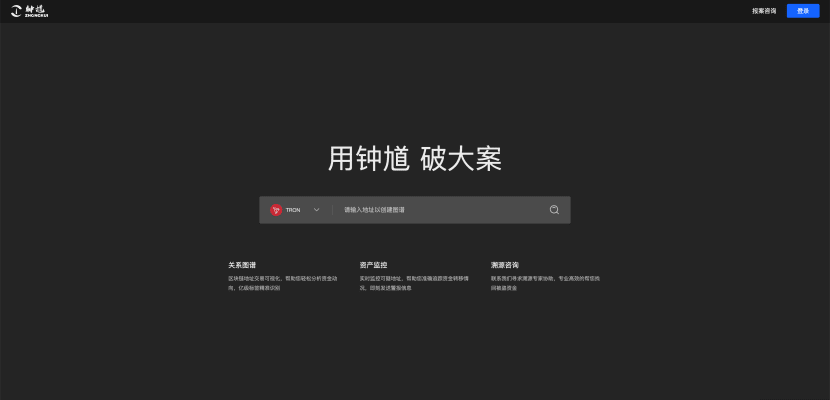With the development of blockchain technology, virtual currencies are widely used globally but are also exploited by criminals for fraud, money laundering, illegal fundraising, and other criminal activities. Public security agencies face many legal, technical, and cross-border enforcement challenges when handling virtual currency cases. Particularly, due to the high liquidity, large value fluctuations, and difficult storage characteristics of virtual currencies, public security agencies often need to quickly take disposal measures after seizing virtual currencies. This article will explore the main difficulties faced by public security agencies in virtual currency cases and provide best practice solutions that are legal and compliant.

01 Major difficulties faced by public security organs in handling virtual currency cases.
1. Difficulties in case filing and legal application.
Currently, the regulatory policies on virtual currencies in mainland China are continuously updated, but there is still a lack of targeted criminal regulations. When public security agencies investigate cases, they usually file cases based on crimes such as fraud, illegal business operations, organizing pyramid schemes, and money laundering under the Criminal Law, but specific cases may involve multiple charges, leading to difficulties in classification.
2. The anonymity of transactions and difficulty in tracing.
Virtual currency transactions rely on blockchain technology and use a decentralized method for transfers. Some currencies (such as Monero, Zcash) also have anonymity, increasing the difficulty of tracing funds. In addition, criminals hide the flow of funds through methods like wallet hopping, multiple address transfers, and mixing services (Tornado Cash), further increasing the challenges faced by public security agencies in investigations.
3. Difficulties in asset seizure.
Suspects cleverly hide assets by storing virtual currency in wallet accounts. During the investigation process, public security agencies often find it difficult to obtain mnemonic phrases or private keys, leading to an inability to directly seize related wallets. In addition, the private keys of some hidden addresses may be held by multiple suspects separately, making it a significant challenge to effectively implement seizures even if funds are discovered.
4. Numerous challenges in freezing funds.
In cases where obtaining private keys for direct asset seizure is not possible, freezing funds becomes a more feasible measure. However, unlike traditional bank accounts, public security agencies cannot directly freeze involved virtual currencies through banks but need to rely on exchanges or stablecoin issuers (such as Tether, Circle) for assistance. This not only requires the provision of legal and compliant judicial documents but also necessitates a deep understanding and precise application of blockchain technology to ensure the effectiveness of the freezing measures.
5. Lack of compliance channels for judicial disposal.
At the judicial disposal stage, there is still a lack of unified regulations on how to legally and compliantly handle frozen virtual currencies. Even if public security agencies successfully freeze virtual currencies obtained from crimes, the subsequent compliance conversion (such as sale, auction) and the process of returning to victims still have many uncertainties. Due to the high liquidity and other characteristics of virtual currencies, relying on a complete, compliant, and executable virtual currency handling plan is crucial for improving the asset handling efficiency of virtual currency cases.
02 Recommendations for virtual currency handling regulations.
To maximize the preservation of the value of the involved assets, public security agencies typically need to initiate disposal procedures as soon as possible within the legal framework to ensure that virtual currencies can be reasonably converted or processed under appropriate market conditions.
(Opinions on further standardizing the disposal of property involved in criminal proceedings)
The opinion clearly states that for specific property involved in cases, especially those with difficult storage conditions and significant market price fluctuations, public security agencies may legally process them in advance. This regulation provides public security agencies with a flexible legal basis for handling high-risk assets such as virtual currencies.
(Regulations on the procedures for handling criminal cases by public security organs)
This regulation provides clear guidance on the disposal of property involved in cases, stating that in situations where asset management is difficult and storage costs are excessively high, public security agencies may conduct advance processing within legal procedures.
(Management measures for confiscated property)
Although primarily focused on the management of confiscated property, it also involves the handling of assets with significant market price fluctuations, difficult storage conditions, or excessively high costs, which can be processed in advance according to the law.
(Several regulations on the management of property involved in cases by public security agencies)
This regulation further strengthens the management mechanism for property involved in cases, clearly stating that when property has high liquidity or management costs are excessively high, timely advance processing measures should be taken.
These regulations fully reflect the legal regulations' clear attitude and determination to process assets with significant price fluctuations, difficult storage conditions, or excessively high storage costs in advance.
03 Best practices for public security agencies in handling virtual currency cases.
Based on the above-mentioned case handling difficulties, how to enhance the improvement of blockchain technology and the tracing capabilities of blockchain, as well as how to conduct legal and compliant processing to improve case handling efficiency. BitJungle was established in 2018, deeply engaged in the field of blockchain security, focusing on blockchain tracing and asset compliant handling.
Its independently developed Zhong Kui system combines big data analysis, machine learning, and multi-chain cross-validation technology to achieve efficient and accurate tracking of blockchain assets. By studying domestic and international regulatory policies, BitJungle has established legal and compliant channels for handling virtual currencies, ensuring efficient execution of the entire process from on-chain tracing and risk identification to final compliant disposal of assets, thus enhancing case handling efficiency and providing professional blockchain security solutions for the industry.

The BitJungle virtual currency handling solution focuses on the following advantages:
1. BitJungle, as a partner of licensed exchanges in Hong Kong, strictly adheres to international regulatory standards, Chinese laws and regulations, and anti-money laundering regulations to ensure that all operations are compliant and secure.
2. With rich experience in solving cases, the independently developed Zhong Kui big data platform provides multi-dimensional analysis capabilities for blockchain funds, significantly lowering the analysis threshold for case handlers. Currently, this system has been put into operation in several public security agencies, providing strong technical support for law enforcement work.
3. Deeply engaged in the field of blockchain security, possessing strong capabilities in solving complex blockchain cases, able to efficiently execute cross-border asset recovery, breakthrough key clues, and evidence collection. Its public business team can provide on-site case analysis support, and has successfully assisted public security in solving several major cases, including those supervised by the Ministry of Public Security, and empowered law enforcement agencies through the Zhong Kui system to achieve full-process case-solving capabilities for blockchain cases.
4. At the same time, implement a margin system to ensure the absolute safety of assets pending disposal by public security agencies, enabling one-time asset disposal transactions worth tens of millions, helping to enhance the capability of fund safety management.
5. BitJungle is committed to creating a compliant solution that is traceable, auditable, and leaves a complete trail, providing professional support for law enforcement agencies and financial security.
Finally.
With the increase in virtual currency cases, public security agencies face multiple challenges in law application, fund tracing, asset disposal, and cross-border cooperation during law enforcement. To enhance the efficiency of blockchain case investigations, it is necessary to continuously improve laws and regulations and leverage the technical support of BitJungle, a globally leading Web3 security company, to enhance on-chain tracing and fund analysis capabilities through the Zhong Kui big data system, thus promoting case investigations more efficiently and ensuring the legal, compliant, and secure disposal of involved virtual currencies through the BitJungle virtual currency handling solution.